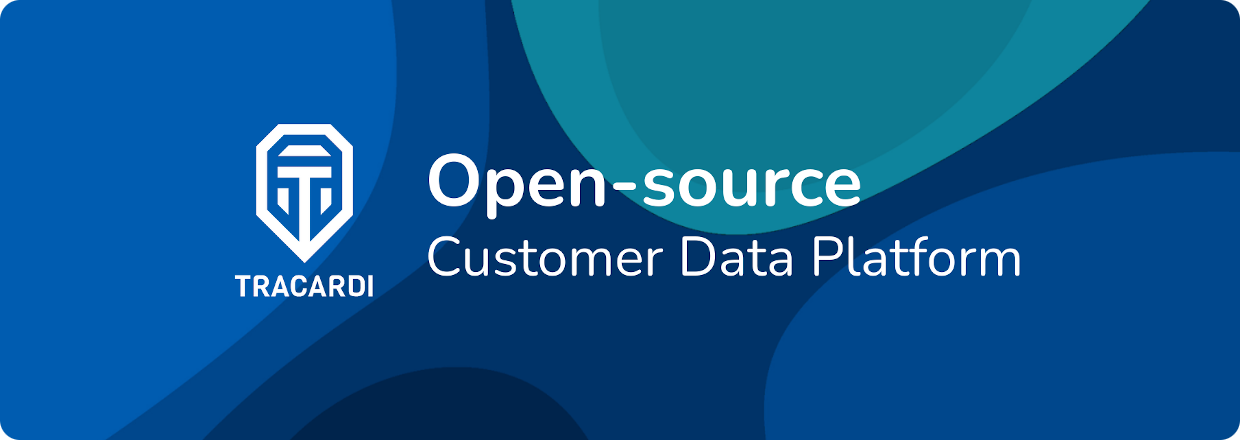The most up-to-date documentation is available at: http://docs.tracardi.com/integration/js/
Tracardi comes with Javascript snippet that integrate any webpage with Tracardi. In order to use it you must paste it in your web page header. This is the example of the snippet:
<script>
const options = {
tracker: {
url: {
script: 'http://192.168.1.103:8686/tracker',
api: 'http://192.168.1.103:8686'
},
source: {
id: "<your-source-id-HERE>"
}
}
}
!function(e){"object"==typeof exports&&"undefine...
</script>If you refresh your page with the above javascript code you will notice that the response from tracardi will be like this:
Headers:
Status: 401 Unauthorized
Body:
detail"Access denied. Invalid source."
This is because of the invalid source id that was not defined in the option.source.id section of the snippet. To obtain source id create it in Tracardi and then replace string ‘‘ with your source id like this:
<script>
const options = {
tracker: {
url: {
script: 'http://192.168.1.103:8686/tracker',
api: 'http://192.168.1.103:8686'
},
source: {
id: "ee2db027-46cf-4034-a759-79f1c930f80d"
}
}
}
!function(e){"object"==typeof exports&&"undefined"!=ty...
</script>Please notice that there is also defined the URL of tracardi backend server. Please replace the IP 192.168.1.103 with the address of your Tracardi server installation.
Now we are ready to send events to Tracardi.
In a separate script define events that you would like to send.
window.tracker.track("purchase-order", {"product": "Sun glasses - Badoo", "price": 13.45})
window.tracker.track("interest", {"Eletronics": ["Mobile phones", "Accessories"]})
window.tracker.track("page-view",{});Events consist of a event type. Event type is any string that describes what happened. In our example we have 3 events: "purchase-order", "interest", "page-view".
Each event may have additional data that describes the details of the event.
For example, we have the event "interest" and it sends data {"Eletronics": ["Mobile phones", "Accessories"]}
Tracardi collects all events and sends it as one request to the Tracradi tracker endpoint.
All events are send when page fully loads.
You can also bind events to page elements. To do that you will need to be sure that the page loads and every element of the page is accessible.
To do that add the following configuration to options.
listeners: {
onInit: ({helpers, context}) => {
// Code that binds events.
}
}The whole configuration should look like this.
<script>
const options = {
listeners: {
onInit: ({helpers, context}) => {
// Code that binds events.
},
tracker: {
url: {
script: 'http://192.168.1.103:8686/tracker',
api: 'http://192.168.1.103:8686'
},
source: {
id: "ee2db027-46cf-4034-a759-79f1c930f80d"
}
}
}
!function(e){"object"==typeof exports&&"undefined"!=typeof module?module.exports=e():"function"==typeof define&&define.amd?define([],e):("undefined"!=typeo...
</script>Then you can write a code that binds for example onClick event on a button to tracardi event.
This is the example code:
onInit: ({helpers, context}) => {
const btn0 = document.querySelector('#button')
helpers.onClick(btn0, async ()=> {
const response = await helpers.track("page-view", {"page": "hello"});
if(response) {
const responseToCustomEvent = document.getElementById('response-to-custom-event');
responseToCustomEvent.innerText = JSON.stringify(response.data, null, " ");
responseToCustomEvent.style.display = "block"
}
});
}It looks for the element with id="button"
const btn0 = document.querySelector('#button')Then using helpers binds onClick on that element to function:
async ()=> {
// Send event to tracardi
const response = await helpers.track("page-view", {"page": "hello"});
if(response) {
const responseToCustomEvent = document.getElementById('response-to-custom-event');
responseToCustomEvent.innerText = JSON.stringify(response.data, null, " ");
responseToCustomEvent.style.display = "block"
}
}Inside the function we send the event to Tracardi:
const response = await helpers.track("page-view", {"page": "hello"});And on response we make a string from JSON response and bind it as innerText of element with id='response-to-custom-event'
The whole configuration looks like this:
<script>
const options = {
listeners: {
onInit: ({helpers, context}) => {
const btn0 = document.querySelector('#button')
helpers.onClick(btn0, async ()=> {
const response = await helpers.track("page-view", {"page": "hello"});
if(response) {
const responseToCustomEvent = document.getElementById('response-to-custom-event');
responseToCustomEvent.innerText = JSON.stringify(response.data, null, " ");
responseToCustomEvent.style.display = "block"
}
});
},
tracker: {
url: {
script: 'http://192.168.1.103:8686/tracker',
api: 'http://192.168.1.103:8686'
},
source: {
id: "ee2db027-46cf-4034-a759-79f1c930f80d"
}
}
}
!function(e){"object"==typeof exports&&"undefined"!=typeof module?module.exports=e():"function"==typeof define&&define.amd?define([],e):("undefined"!=typeo...
</script>You probably noticed that we use helpers to bind events. We used onClick method to bind to click event. You might need to bind to other than click event. To do that use addEventListener:
const btn0 = document.querySelector('#button')
helpers.addListener(btn0, 'mouseover', async ()=> {
// Code
});Helpers also have track method that let you send custom event to Tracardi at any time.
npm install yarn
yarn install
yarn build
It builds loader that loads the script and a script itself.
